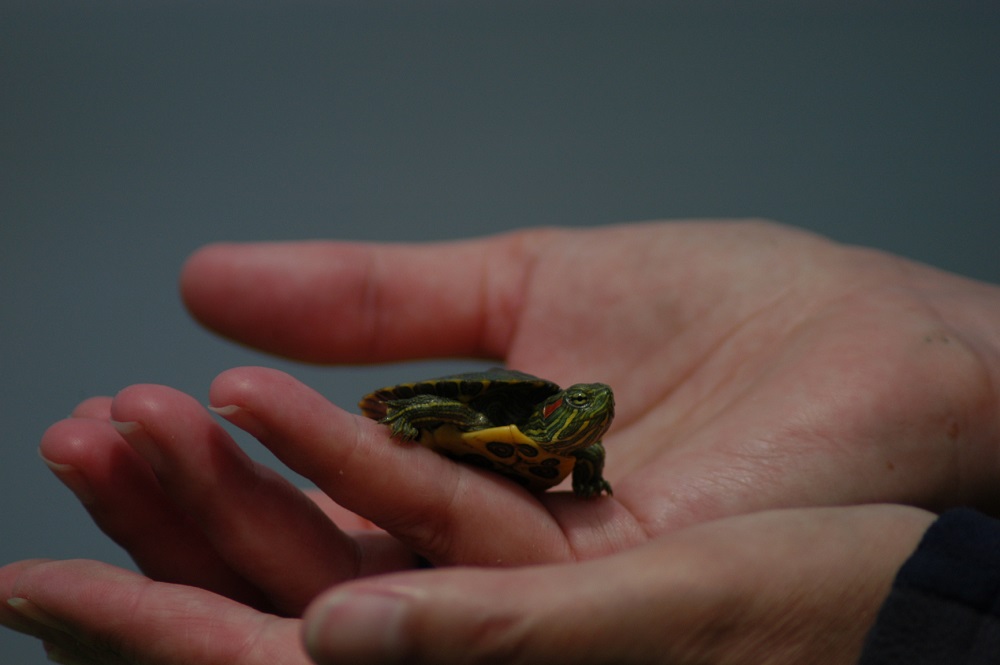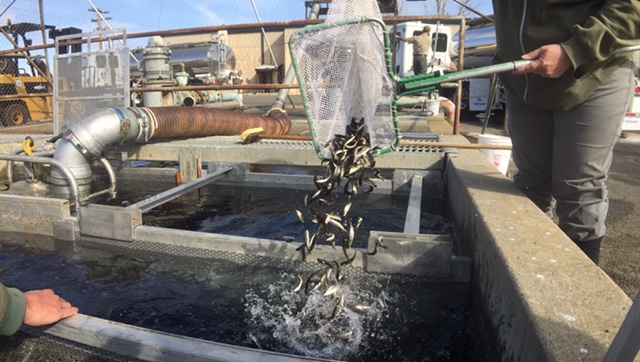Fish Report for 3-21-2017
2017 Invasive Species Youth Art contest

by CDFW
3-21-2017
Website
Young artists and future biologists are invited to enter this year’s California Invasive Species Art Contest, sponsored by the California Department of Fish and Wildlife (CDFW). This year’s theme is “Don’t Let it Loose!”
Youths in grades 2 through 12 are eligible to enter. Entries should depict invasive species that might be released into California’s waters, parks and wildlands, along with appropriate messaging such as (but not limited to) the following:
- Releasing invasive species into the wild can harm the environment and California’s native plants and animals
- Description(s) of one or more species that are commonly released into waters, parks or wildlands
- Explanations or illustrations showing other ways to rehome unwanted pets or plants
All types of media are welcome and encouraged – drawings, paintings, animations, comic strips, videos, public service announcements, etc. Submissions must be received no later than May 5, 2017, and may be submitted by email or regular mail.
Winners will be chosen in three age divisions: grades 2-4, 5-8 and 9-12. Winners from each division will receive awards and have their posters displayed on CDFW’s Invasive Species Action Week webpage. The submission judged to be the best overall will also receive the “Invasive Species Program Choice” Award.
The entry form and a pdf of the contest announcement flyer can be found online at wildlife.ca.gov/CISAW.
The contest is sponsored by CDFW’s Invasive Species Program as part of the 2017 California Invasive Species Action Week, June 3-11. The goal of the Action Week is to increase public awareness of invasive species issues and encourage public participation in the fight against California’s invasive species and their impacts on our natural resources.
Many people don’t realize the potential implications of very simple acts. For example, the release of non-native crayfish used as fishing bait has likely resulted in the decline of California’s native crayfish and impacted other species dependent on the habitat. The dumping of aquarium plants can ultimately end up destroying the quality of our waterways and lands. Red-eared sliders, aquarium fish, and Nerodia watersnakes are other examples of released species that can become invasive and negatively impact native species.
California Invasive Species Action Week activities around the state will include presentations on aquatic and terrestrial invasives, guided outings to observe and assess infested areas, invasive species removal efforts, habitat restoration projects and the announcement of the winners of the youth poster contest. Opportunities for youths and adults to participate or volunteer will be available across the state through participating agencies, organizations and volunteer groups, with information and details to be provided on the Action Week webpage.
More information about CDFW’s Invasive Species Program, including examples of invasive species currently affecting California’s wild lands, can be found at wildlife.ca.gov/conservation/invasives.
Photos
< Previous Report Next Report >
< Previous Report Next Report >
More Reports

3-21-2017
The carcass of a young and otherwise healthy coyote found in a San Francisco park has tested positive for four...... Read More

3-20-2017
The California Department of Fish and Wildlife (CDFW) in cooperation with the National Oceanic and Atmospheric Administration (NOAA) National Marine...... Read More

Website Hosting and Design provided by TECK.net
